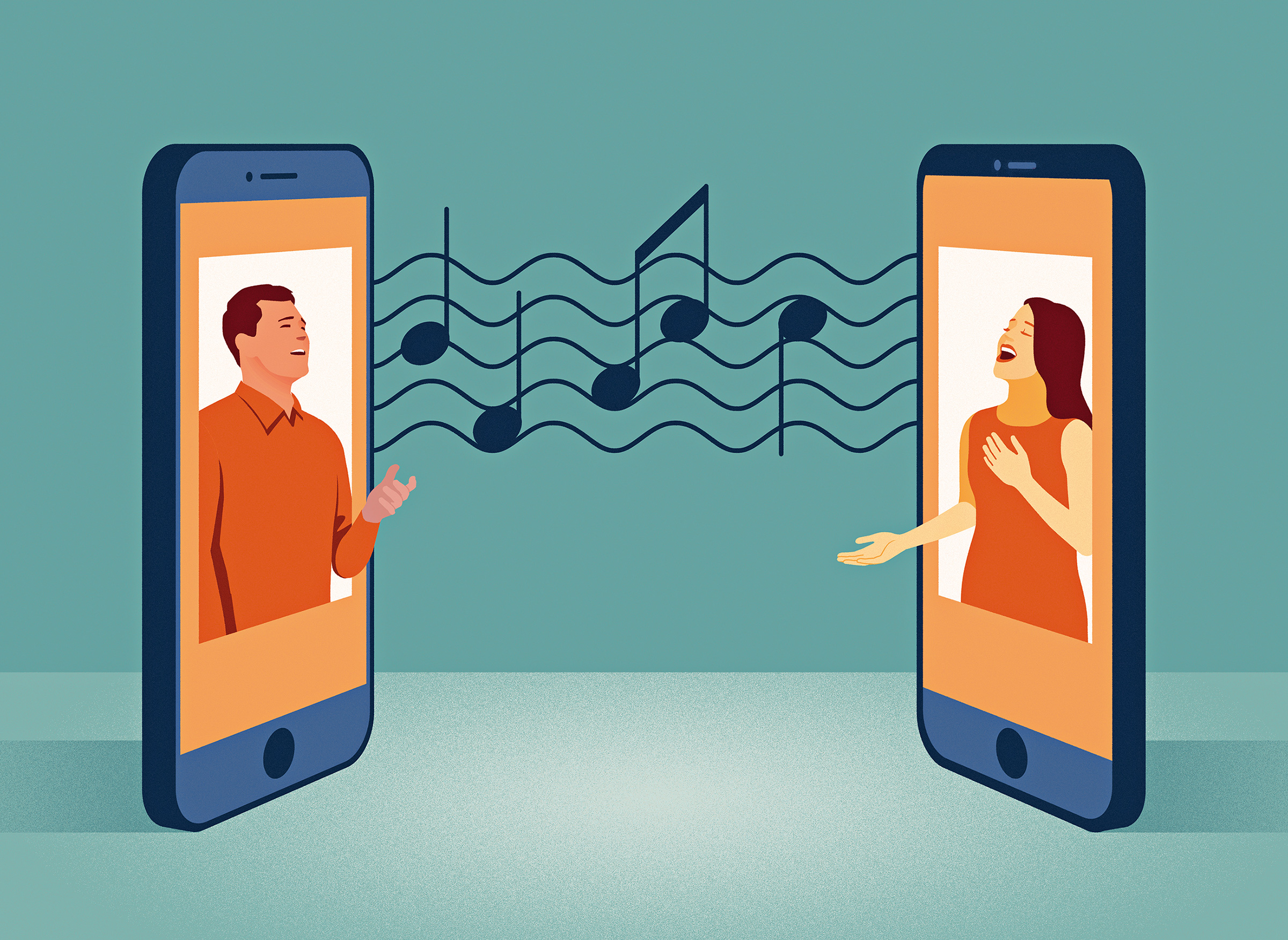A few years ago, I began taking vocal lessons. Like many people, I was an enthusiastic, lifelong singer, at least in the privacy of my shower. But I wondered if I could actually acquire any skill in the discipline, enough that my family would stop flinching as I belted out the occasional tune around the house. As with any motor skill–what singing primarily is–it took a lot of work. But, gradually, I began staying more on pitch, expanding my range, improving my breath control.
I soon felt the need to do something with this singing. As I was hardly ready for a solo recital at Carnegie Hall, I decided to join a choir.
I signed up with a group called the New York Choir Project, largely on the strength of two things: First, they did songs by Oasis and Eminem. Second, and more important, they didn’t require auditions. Even so, the early days were terrifying. I probably lip-synched half the time, taking shelter in the sonic envelope of my fellow choristers.
But a funny thing happened. Choir became a high point in my life. I’d close out normally dreary Mondays with that evening’s rehearsal and leave on an absolute high. Small wonder, for as science and experience have shown, singing together is ridiculously good for us. There’s a raft of evidence for how it improves our sense of well-being, releases a flood of beneficial hormones, lowers blood pressure and boosts immune response. The choir brought things to my life I wasn’t even aware I was missing: new friends, a reassuring ritual, the challenge of doing something novel.
But then a not-funny thing happened: COVID-19. In early March, we were rehearsing energetically for a show. By the next week, the rehearsals, and the show, were history. Later, news would emerge of how a choir rehearsal in Washington State was a “superspreader” event that infected dozens and left two choir members dead.
In an operatic twist of tragic irony, this thing that was so good for people was now an epidemiologist’s nightmare. Imagine a warm room, filled with recycled air, packed with people–the ideal distance between singers has been put at 18 to 24 in., but often we were literally rubbing shoulders–potentially emitting six times the percentage of airborne droplet nuclei as a roomful of people merely talking would. A dynamic engine for producing transcendent sound was now a virulent conduit for spreading pathogens.
As the spring weeks wore on, deprived of my voice, I turned to Smule, the popular karaoke app. It goes like this: using your phone and earbuds, you either sing one-half of a song or join someone else’s prerecorded track. As in a kind of Facebook in song (come find me at the handle “adultbeginner”), you friend people, you “favorite,” you leave comments. Singing into your phone with strangers may seem odd, but curiously enough, the old power of music to connect people can still come through. Smule says there are hundreds of “Smule babies” it knows of–the children of people who met through the app and started families. I’m not looking for love, but I’ve sung Sondheim with Indonesians and R.E.M. with Floridians, I’ve sung Spanish ballads with Germans and reggae anthems with Koreans. I’ve sung with people in their parked cars or in their bedrooms. I’ve made new singing buddies around the globe–there’s nothing like opening up via the vulnerable act of singing to find out if you strike a chord with someone.
But I miss my real-world choir. I miss feeling the actual energy coming off of other people. I miss having an audience beyond my wife and daughter. Like any number of quarantined choirs–and choral singing is America’s most popular performing art by participation–my choir has moved online, to the familiar Zoom grid. It’s reassuring to see this sea of earbud-clad friendly faces, but as the technology isn’t quite there, we can’t all sing together live. I’m dreaming of the day our voices–and breath–reunite.
- Donald Trump Is TIME's 2024 Person of the Year
- Why We Chose Trump as Person of the Year
- Is Intermittent Fasting Good or Bad for You?
- The 100 Must-Read Books of 2024
- The 20 Best Christmas TV Episodes
- Column: If Optimism Feels Ridiculous Now, Try Hope
- The Future of Climate Action Is Trade Policy
- Merle Bombardieri Is Helping People Make the Baby Decision
